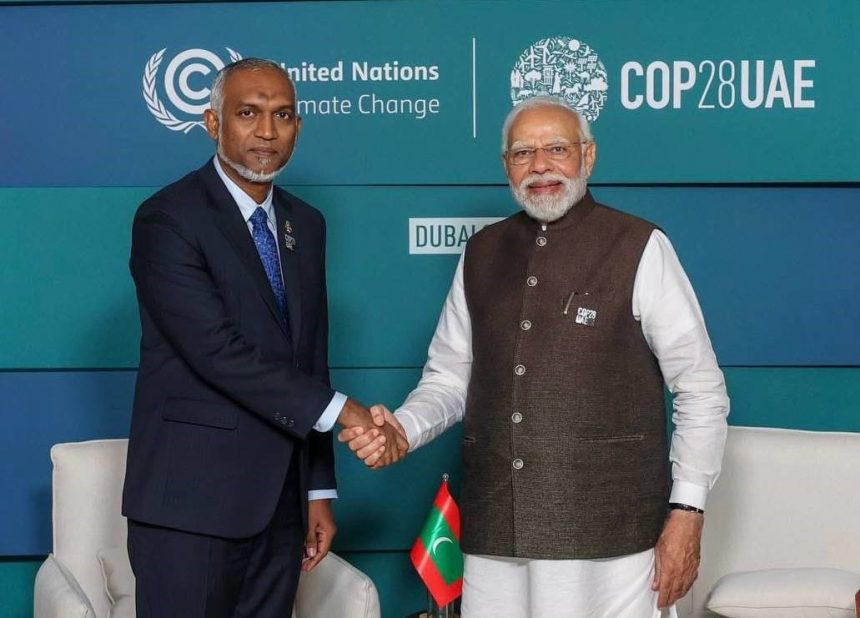Washington Post Reveals Covert Power Struggles Between India and China in the Maldives
In an exclusive report published today, The Washington Post unveiled a gripping tale of geopolitical maneuvering involving the Maldives, India, and China. Written by Gerry Shih and Siddharthya Roy, the article sheds light on covert plans, political schemes, and economic battles that highlight the intensifying rivalry between Asia’s two largest powers.
A Challenge to India’s Influence
The Maldives, often seen as a paradise for honeymooners, became a hotbed of international tension in late 2023. Mohamed Muizzu, the newly elected president, pledged to expel Indian troops and deepen ties with China. His fiery rhetoric and pro-China stance alarmed New Delhi, which has historically maintained a stronghold in the region.
According to The Washington Post, India’s intelligence agency, the Research and Analysis Wing (RAW), discreetly explored plans to counter Muizzu’s presidency. An internal document, titled “Democratic Renewal Initiative,” detailed proposals to impeach Muizzu by bribing 40 lawmakers, as well as military and police officials. The conspirators allegedly sought $6 million, potentially from Indian sources, to execute the plan. However, the effort ultimately failed due to a lack of parliamentary support and fears of destabilizing the Maldives.
The Strategic Significance of the Maldives
The Maldives’ 1,200 islands, located along critical shipping routes between the Middle East and Asia, make the nation a vital piece in the geopolitical puzzle. For years, India has provided humanitarian aid, military training, and economic assistance to the Maldives. However, China’s increasing influence, marked by projects like the $200 million Sinamale Bridge under its Belt and Road Initiative, has posed a direct challenge.
Muizzu, seen as a protégé of former President Abdulla Yameen, has strengthened ties with Beijing, alarming Indian officials who fear the establishment of Chinese military facilities in the Indian Ocean.
India’s Attempt to Counter Muizzu
The Washington Post revealed that RAW held discussions with Maldivian opposition leaders and intermediaries, including Shirish Thorat, a former Indian police officer, and Savio Rodrigues, a publisher with close ties to India’s ruling Bharatiya Janata Party. Surveillance records obtained by Muizzu’s family adviser documented these interactions. Both Thorat and Rodrigues confirmed the existence of plans to remove Muizzu but denied acting on behalf of the Indian government.
Despite these covert discussions, Indian officials expressed concerns about the potential fallout of overthrowing a democratically elected leader. The Ministry of External Affairs in India declined to comment on the allegations.
A Broader Geopolitical Struggle
The report highlights the Maldives as a microcosm of the larger struggle between India and China for influence in South Asia. While India has traditionally supported pro-democracy movements and secular leaders, its interventions have sometimes sparked local resentment. Conversely, China’s financial investments have provided leverage in the region but raised concerns over debt dependency.
The Maldives owes debt amounting to 120% of its GDP, primarily to China and India. As tensions escalated, Muizzu turned to Beijing and Ankara for financial assistance but later sought a rapprochement with India.
India’s Strategic Pivot
After Muizzu’s party won a parliamentary majority in April 2024, rendering impeachment attempts futile, India shifted its approach. Recognizing the Maldives’ economic challenges, India deferred $100 million in debt repayments and extended a $700 million currency swap. These measures contrasted sharply with China’s less accommodating stance.
In October 2024, Muizzu visited India, calling the country a “valued partner.” This marked a significant shift in his stance, driven more by economic necessity than political realignment.
Implications for the Region
The Maldives’ story, as reported by The Washington Post, underscores the delicate balancing act smaller nations must perform in the face of great power competition. For India and China, the stakes remain high as both nations continue to vie for strategic influence in the Indian Ocean.
As the Maldives navigates this geopolitical tightrope, its decisions will have far-reaching implications for the region’s stability and the ongoing rivalry between Asia’s two dominant powers.




